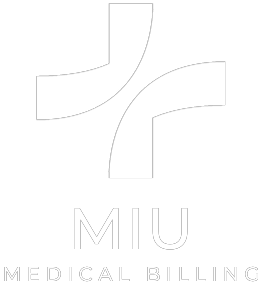Introduction
The healthcare industry relies heavily on certified provider credentialing specialists to ensure that medical professionals meet the necessary qualifications and standards. As a certified provider credentialing specialist, you play a crucial role in maintaining the integrity of healthcare organizations and safeguarding patient care. This comprehensive guide will walk you through the steps to becoming a provider credentialing specialist, exploring the education, skills, and experience required for success in this dynamic field.
The Role of a Certified Provider Credentialing Specialist

A certified provider credentialing specialist is a gatekeeper for healthcare organizations, verifying medical providers’ qualifications, licenses, and certifications. These professionals conduct thorough background checks, review educational credentials, and ensure compliance with regulatory requirements. The certified provider credentialing specialist’s work is essential for maintaining the quality of care and protecting patients from unqualified practitioners. By mastering the professional provider credentialing process, you’ll become an invaluable asset to healthcare organizations seeking to uphold the highest standards of patient care.
Educational Requirements for Becoming a Certified Credentialing Specialist
To embark on becoming a certified provider credentialing specialist, you’ll need to meet specific educational requirements. Most employers prefer candidates with at least a bachelor’s degree in healthcare administration, business administration, or a related field. Some organizations may accept candidates with an associate degree and relevant work experience. As a certified provider credentialing specialist, you’ll benefit from coursework in healthcare law, medical terminology, and health information management. These foundational skills will prepare you for the complexities of the credentialing process and help you navigate the ever-changing landscape of healthcare regulations.
Developing Essential Skills for Success
A successful certified provider credentialing specialist possesses a unique blend of technical knowledge and soft skills. Attention to detail is paramount; you’ll be responsible for reviewing and verifying extensive documentation. Strong organizational skills are essential for managing multiple applications simultaneously and meeting tight deadlines. As a provider credentialing specialist, you’ll also need excellent communication skills to interact with healthcare providers, administrative staff, and regulatory bodies. Proficiency in database management and credentialing software is crucial for efficiently processing applications and maintaining accurate records. You’ll be a competent and reliable provider credentialing specialist by honing these skills.
Gaining Experience in the Field
Experience is a valuable asset for any certified provider credentialing specialist. Many aspiring professionals begin their careers in entry-level positions within healthcare organizations, such as medical offices or hospitals. These roles provide exposure to the credentialing process and help you understand the intricacies of provider enrollment and credentialing services. As you gain experience, you may have the opportunity to work with various insurance providers, including Blue Cross Blue Shield credentialing departments. This diverse experience will broaden your understanding of the credentialing landscape and prepare you for certification exams. Remember, as a certified provider credentialing specialist, your expertise grows with each application you process and each challenge you overcome.
Pursuing Professional Certification

Obtaining professional certification is crucial to establishing yourself as a provider credentialing specialist. The National Association of Medical Staff Services (NAMSS) offers two widely recognized certifications: Certified Provider Credentialing Specialist (CPCS) and Certified Professional Medical Services Management (CPMSM). These certifications demonstrate your expertise in the field and commitment to professional development. As a certified provider credentialing specialist, you must meet specific eligibility requirements, including education and work experience. Preparing for these certification exams requires dedication and a thorough understanding of credentialing regulations, policies, and best practices.
Navigating Complex Credentialing Processes
As a provider credentialing specialist, you’ll encounter various credentialing processes depending on the organization and insurance provider. For instance, CareFirst credentialing may have different requirements than other insurance companies. Understanding these nuances is essential for successfully guiding providers through the credentialing process. You’ll need to stay updated on changes in regulations and policies that affect credentialing, such as those related to non-credentialed providers billing under another provider. By mastering these complexities, you’ll become an indispensable resource for healthcare organizations navigating the intricate world of provider credentialing.
Career Opportunities and Advancement
The field of provider credentialing offers numerous career opportunities for certified provider credentialing specialists. You may find positions in hospitals, medical groups, insurance companies, or credentialing verification organizations. As you gain experience and expertise, you can advance to supervisory or managerial roles, overseeing credentialing departments or leading provider enrollment and credentialing services. Some certified provider credentialing specialists specialize in specific areas, such as Blue Cross Blue Shield or CareFirst credentialing. Others may transition into consulting roles, helping healthcare organizations optimize their credentialing processes. With dedication and continuous learning, your career as a certified provider credentialing specialist can be both rewarding and dynamic.
Conclusion
Becoming a certified provider credentialing specialist offers a challenging and fulfilling career path in the healthcare industry. By pursuing the necessary education, developing essential skills, gaining hands-on experience, and obtaining professional certification, you’ll position yourself for success in this critical role. As a provider credentialing specialist, you’ll play a vital part in ensuring patient care quality and safety while contributing to healthcare organizations’ overall efficiency. Embrace the opportunities for growth and advancement in this field, and you’ll find yourself at the forefront of maintaining healthcare standards and protecting patient well-being.




